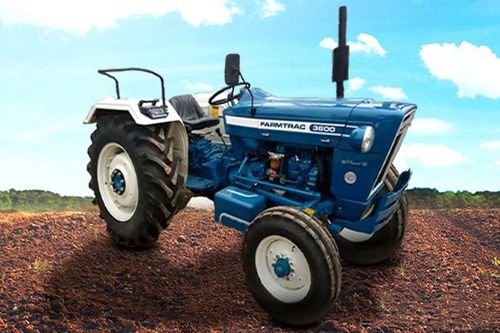Ad
Ad
Poplar Tree Care: Tips for Healthy Growth in Cold Climates

The Poplar tree is known as "Semal" in Hindi and is famous in India by this name. However, it goes by different names in various regions across the country.
Poplar trees are known for their rapid growth and are a popular choice for landscaping and shade in many regions. While these trees are hardy and resilient, proper care becomes especially crucial in cold climates where they may face unique challenges.
Poplar trees and their uses
Poplar trees are known for their immense height, windbreak nature, and other economic significance. They are backyard trees that work as windbreaks or wind-rows, planted in hedgerows around the border of the fields and farms to control soil erosion.
Poplar trees are native to Europe and North America, while some species are indigenous to the Himalayan region of India. You can find it in the cold states like Kashmir, Uttarakhand, Himachal Pradesh, and Arunachal Pradesh.
Poplar trees are grown for their trunks that are used in making plywood and wood pulp for manufacturing and construction purposes. Stringed instruments like violins and harps often use poplar wood as one of the primary structural components. The tree was used during ancient times by the Greeks and Romans for creating shields from its wood.
Poplar trees have a lifespan of around 50 years, and then they die back. There are more than 30 varieties of poplar trees. Some of the most popular ones are White, Lombardy, the Eastern, and Balsam Poplar Tree.Poplar trees are pretty famous for their immense height, of more than 80-100 feet. Every year, they can grow to be 3-5 feet tall.
Also Read: Banana Farming In India: A Comprehensive Guide To Banana Farm, Plantation, And Varieties
During spring, the tree produces hanging clusters of yellow blooms. Poplar trees can tolerate a broad range of climates; nevertheless, they prefer well-draining, fertile soil with a neutral to slightly acidic pH. They thrive in bright, direct sunlight with adequate irrigation for root growth. In this article, we have provided some tips for the Healthy Growth of poplar trees in Cold Climates.
Tips for the Healthy Growth of Poplar Trees
Choose the Right Poplar Variety
Selecting a poplar tree variety that is well-suited to your climate is the first step in ensuring healthy growth. Some poplar species, such as the Lombardy Poplar (Populus nigra 'Italica'), are better adapted to cold climates due to their natural tolerance to frost and winter conditions.
Planting Considerations
Proper planting practices play a significant role in the long-term health of poplar trees. When planting in cold climates, ensure the site has well-draining soil to prevent waterlogging, which can be detrimental to the tree's roots during freezing conditions. Planting in early spring or early fall allows the tree to establish its roots before winter.
Irrigation System
Adequate watering is crucial for poplar trees, especially during dry periods in cold climates. While it might seem contradictory, winter drought can be a concern for poplar trees. Water the trees deeply in the fall before the ground freezes to ensure they have enough moisture to withstand winter dry spells.
Mulching
Apply a layer of mulch around the base of the poplar tree to insulate the soil. Mulching helps regulate soil temperature, retains moisture, and prevents rapid freezing that can damage the tree's roots. Use organic mulch like bark chips or straw, and spread it in a circle around the tree, keeping it a few inches away from the trunk.
Pruning
Regular pruning is essential for maintaining the health and structure of poplar trees. Remove dead or diseased branches during the dormant season to encourage new growth in the spring. Pruning also helps prevent wind and snow damage, common challenges in cold climates.
Protection from Extreme Weather
Shield young poplar trees from extreme weather conditions, such as heavy snow loads or ice accumulation, which can cause branches to break. Use stakes to support young trees and tie branches together to reduce the risk of damage.
Fertilization
While poplar trees are generally hardy, they benefit from proper nutrition. Fertilize in the early spring with a balanced, slow-release fertilizer to provide essential nutrients for vigorous growth. Avoid over-fertilizing, as excessive nutrients can be harmful.
Pest and Disease Management
Keep an eye out for common pests and diseases that can affect poplar trees, especially during colder months when the trees may be stressed. Regular inspections and early intervention can prevent potential issues from becoming severe.
Winter Inspection
Conduct a thorough inspection of your poplar trees in late winter or early spring. Look for signs of winter damage, such as broken branches or frost cracks, and address them promptly to promote a healthy growing season.
Problems related to Poplar Tree
Poplar trees, while valued for their rapid growth and various benefits, can bring about certain challenges and problems. One notable issue is the extensive root system these trees develop. The large and invasive roots have the potential to cause damage to nearby structures, such as buildings and infrastructure.
One common problem is the risk of these roots interfering with house foundations. The force exerted by the roots can lead to the crumbling of foundations, posing a threat to the stability and safety of structures. Additionally, poplar roots have been known to disrupt sewer lines, causing blockages and potential damage to plumbing systems.
To avoid these problems, it is recommended to take caution when planting poplar trees, particularly near buildings or infrastructure units. Thoughtful planning and strategic placement can help mitigate the risk of damage associated with the robust root systems of poplar trees, allowing for peaceful living with these helpful but potentially problematic trees.
Also Read: Cauliflower Farming: Cultivation, Planting & Harvesting
Conclusion
Poplar trees can thrive in cold climates with the right care and attention. By selecting appropriate varieties, practising proper planting techniques, and implementing ongoing maintenance strategies, you can enjoy the beauty and benefits of these majestic trees in your field.
With a little care, your poplar trees can withstand the challenges of winter and continue to provide shade, beauty, and environmental benefits for years to come.
Features & Articles
10 Most Powerful Tractors in India (January 2026)
Discover the 10 most powerful tractors in India (Jan 2026) with 90–130 HP. Compare John Deere, New Holland, Sonalika & more with prices and uses....
02-Jan-26 06:30 AM
Read Full NewsMost Fuel-Efficient Tractors in India (January 2026)
Discover the most fuel-efficient tractors in India for 2026. Compare mileage, prices & specs of New Holland, Mahindra, Sonalika, Massey & Eicher....
01-Jan-26 10:17 AM
Read Full NewsBest Tractor Tyres for Farming in 2026: Top Brands, Features, and Buying Guide
Discover the best tractor tyres for farming in 2026. Compare top brands, key features, buying tips, and maintenance advice to improve grip, mileage, and tyre life....
26-Dec-25 10:49 AM
Read Full NewsTop 5 Wheat Varieties for January Sowing to Get Better Yield
Discover the best wheat varieties for January sowing. Learn about yield, benefits, regions, and expert tips to help farmers get better production despite late planting....
24-Dec-25 07:17 AM
Read Full NewsNational Farmers Day 2025: Why is Kisan Diwas Celebrated on 23 December? Full Story and Significance
Know why National Farmers Day is celebrated on December 23, its history, importance, and Chaudhary Charan Singh’s role in empowering Indian farmers and strengthening agri...
23-Dec-25 10:49 AM
Read Full NewsWheat Farming Tips: Easy and Proven Ways to Increase Tillers and Get a Bumper Wheat Yield
Learn simple and proven wheat farming tips to increase tillers, improve soil health, and get a bumper wheat yield using mustard cake, nutrients, and timely irrigation....
22-Dec-25 07:25 AM
Read Full NewsAd
Ad
As featured on:


Registered Office Address
Delente Technologies Pvt. Ltd.
M3M Cosmopolitan, 12th Cosmopolitan,
Golf Course Ext Rd, Sector 66, Gurugram, Haryana
pincode - 122002




















